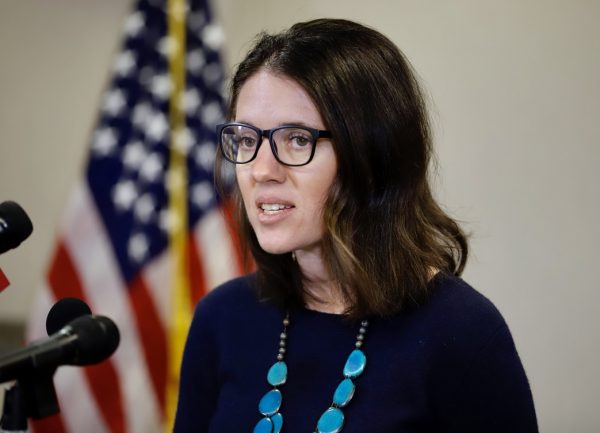
State health officials said they’re “cautiously optimistic” about a decline in new coronavirus cases over the past week.
“When you are wearing your mask, you’re physically distancing, you’re keeping your social circle small, Alaskans are able to push these numbers down,” Alaska’s Chief Medical Officer Dr. Anne Zink said at a Thursday news conference.
On Thursday, the state reported 366 new COVID-19 cases.
Two weeks ago, that daily case update reached a record 933. Over the last week, the statewide tally of new cases has oscillated between 284 and 640 each day.
State epidemiologist Dr. Louisa Castrodale said, this time, the lower numbers don’t appear to be a case of underreported data, which happened a few weeks ago when staff couldn’t keep up with reporting during a spike in new infections.
“We’re very diligent people. We check our fax machine, make sure there’s paper, make sure all the connections are right,” she said. “We’re checking with the labs to make sure their electronic feeds are coming in right and it feels like it’s sort of real.”
While health officials can’t put a finger on exactly what caused the numbers to start declining, they said one reason is likely a plea several weeks ago from health and government officials through the state’s alert system to take precautions. Epidemiologist Dr. Joe McLaughlin said restrictions in Anchorage are also helping.
“Their orders that they’ve put in to really try and decrease transmission rates through mitigation is helping,” he said. “We know that case counts statewide are driven to a large degree by Anchorage case counts, and we’ve seen the Anchorage case counts really start to decline.”
Deaths and hospitalizations usually follow several weeks or even months after an increase in cases, so officials warned that Alaska may not have seen the worst of the trauma yet from the large wave of cases.
“We are at a fragile point in winter and with our health care capacity being pretty darn full,” Zink said. “So, really want to continue all those really important mitigation steps.”
Hospitals are still stressed from the workload and preparing for the possibility of more cases, said Jaren Kosin, who runs the state’s hospital association. He knows the worst outcomes from the large wave of cases is likely still ahead. But Kosin said modeling suggests hospitals won’t reach capacity, at least during this wave of transmission.
“I mean if the trends continue on where they are, I think we’re going to be really happy,” he said.
The arrival of the vaccines also means it’s less likely a large-scale outbreak among health care workers could threaten ICU staffing.
Still, Zink warned that the pandemic isn’t over, and masking and distancing are still as important as ever so Alaska can reopen schools and businesses as soon as possible.
Lex Treinen is covering the state Legislature for Alaska Public Media. Reach him at ltreinen@gmail.com.





